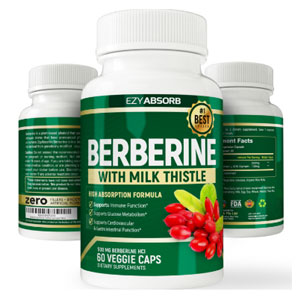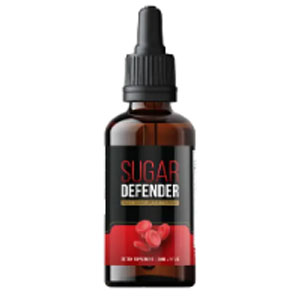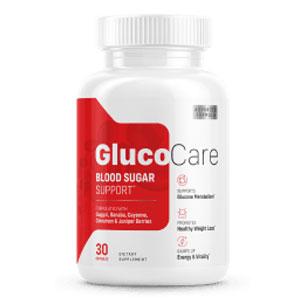Berberine Supplement Introduction
Meet the herbal extract known as berberine, a natural powerhouse with a long history in traditional medicine and a growing body of scientific studies proving its numerous health benefits. We’ll cover all you need to know about berberine in this guide, including its history, applications, possible adverse effects, and dosage guidelines.

What is Berberine?
The bioactive substance berberine is present in a number of plants, such as Oregon grape, goldenseal, and barberry. Berberine, well-known for its powerful therapeutic effects, has been used in traditional Chinese and Ayurvedic medicine for centuries. It has a wide range of health advantages, including helping to regulate blood sugar, strengthening heart health, supporting weight loss, and improving digestive wellness. Berberine acts by affecting the body’s metabolic functions, such as lipid metabolism, glucose regulation, and insulin sensitivity. Modern research is still interested in this natural powerhouse because of its potential therapeutic uses in treating a range of health issues.
How does berberine work?
Berberine affects the body through a variety of mechanisms. Its main effect is to increase insulin sensitivity, which makes cells more responsive to insulin and facilitates better bloodstream absorption of glucose.Berberine also lowers blood sugar levels overall by inhibiting liver enzymes that produce glucose. Additionally, it triggers the activation of AMP-activated protein kinase (AMPK), a crucial regulator of energy metabolism that aids in promoting the uptake of glucose and cell fat burning. Additionally, it has been demonstrated that berberine modifies a number of signaling pathways related to lipid metabolism, which enhances cardiovascular health and cholesterol levels. Berberine is a potentially useful natural compound for treating conditions such as diabetes, obesity, and cardiovascular disease due to its diverse actions.
Benefits of Berberine Supplement:
- Blood Sugar Control: By increasing insulin sensitivity and decreasing the liver’s production of glucose, berberine may help control blood sugar levels, according to a number of studies. It is therefore a potentially beneficial supplement for people who have diabetes or prediabetes.
- Heart Health: Research has demonstrated that berberine can improve cardiovascular health by raising HDL cholesterol and reducing LDL and triglyceride levels. These outcomes could lower the chance of developing heart disease and enhance heart health in general.
- Weight management: According to some research, berberine may help with weight loss by affecting a number of metabolic processes, such as boosting fat burning and decreasing fat storage.
- Digestive Health: Due to its antimicrobial qualities, berberine is useful in combating specific bacteria, viruses, and parasites that can lead to digestive problems like bacterial overgrowth and diarrhea.
- Anti-inflammatory Effects: Berberine has anti-inflammatory qualities that may help reduce the discomfort of inflammatory diseases like inflammatory bowel disease and arthritis.
Berberine Supplement Ingredients
Naturally, berberine is the main active component in supplements containing berberine. It’s crucial to remember that berberine supplements might also include other substances, and these could differ based on the brand and formulation. The following are typical components of berberine supplements:
- Berberine: The main ingredient is an alkaloid compound that is commonly obtained from plants like Oregon grape, goldenseal, and barberry. Most of the health benefits of berberine supplements are attributed to berberine itself.
- Excipients are inert materials added to supplements to facilitate production, boost absorption, or improve stability. Among the common excipients are lubricants, binders, and fillers.
- Capsule or Tablet Shell: Berberine supplements are frequently supplied in the form of capsules or tablets, the shells of which may include extra ingredients like cellulose, gelatin, or vegetable-based materials.
- Bioavailability Enhancers: Certain compositions may contain components that increase berberine’s absorption and bioavailability. Liposomal formulations and piperine, which is derived from black pepper extract, are two examples of bioavailability enhancers.
- Additional Herbal Extracts: Supplement manufacturers may include additional herbal extracts or nutrients to enhance the effects of berberine, depending on the intended use of the product. For blood sugar support, for instance, you might come across supplements that blend berberine with components like chromium, curcumin, or cinnamon extract.
- Antioxidants: Antioxidants like vitamin C, vitamin E, or selenium may be added to the supplement’s formulation to increase its overall health benefits.
- Flavorings and Coloring Agents: Although it is less frequent with berberine supplements, manufacturers occasionally add flavorings or coloring agents to enhance the taste or appearance of the supplement.
There are other products with similar ingredients, like HoneyBurn, Sugar Defender, which you may want to try.
The Science Behind How Berberine Supplement Works?
Supplemental berberine exerts its health-promoting effects via a variety of mechanisms. This is an explanation of the science underlying the action of berberine. Berberine’s complex mechanisms of action render it ahighly effective supplement in enhancing insulin sensitivity, controlling the metabolism of glucose and fats, mitigating inflammation, and advancing general metabolic and cardiovascular well-being.
Advantage and Disadvantage Berberine Supplement
Advantages of Berberine Supplement:
- Blood Sugar Control: Research has demonstrated that berberine can help control blood sugar levels by increasing insulin sensitivity and decreasing the liver’s production of glucose. It is therefore an important supplement for people who have diabetes or prediabetes.
- Heart Health Support: By raising HDL cholesterol and decreasing LDL and triglyceride levels, berberine can help strengthen the heart. These benefits might lower the chance of developing heart disease and enhance heart health in general.
- Weight Management: Berberine has been shown in some studies to increase fat burning and decrease fat accumulation, which may help with weight loss. This makes it a possible supplement for people trying to effectively control their weight.
- Digestive Health Benefits: Antimicrobial qualities of berberine can aid in the fight against some bacteria, viruses, and parasites that cause digestive problems like bacterial overgrowth and diarrhea. Also, it might encourage a more balanced gut microbiota.
- Anti-inflammatory Effects: Berberine has anti-inflammatory qualities that may help reduce the discomfort of inflammatory illnesses like arthritis and inflammatory bowel disease.
Disadvantages of Berberine Supplement:
- Gastrointestines Side Effects : When taking berberine supplements, some people may have nausea, diarrhea, or gastrointestinal discomfort, especially at higher doses. Although these side effects are usually not too severe, some users may find them bothersome.
- Interactions with Medications: Berberine may cause drug interactions with blood pressure, anticoagulants, antibiotics, and other prescription drugs. Before beginning berberine supplementation, it is important to speak with a healthcare provider, particularly if you are taking other medications.
- Pregnancy and Breastfeeding: The use of berberine supplements during pregnancy and breastfeeding has not been thoroughly studied for safety. Berberine supplementation should not be taken by expectant or nursing mothers unless a healthcare professional specifically advises it.
- Liver and Kidney Toxicity: Although it is uncommon, some people may experience liver or kidney toxicity from high berberine dosages. It’s critical to follow dosage recommendations and keep an eye out for any negative effects.
- Quality and Purity Concerns: Different brands of berberine supplements may have different levels of quality and purity. The efficacy of certain supplements may be impacted by contaminants or berberine concentrations that are too low. Selecting premium supplements from reliable sources is crucial.
What Expert Saying?
- Dr. Michael Murray, ND: Prominent naturopathic physician Dr. Murray, the author of multiple books on natural medicine, has brought attention to the encouraging studies on berberine’s impact on insulin sensitivity and blood sugar levels. For those seeking a natural substitute to promote a healthy glucose metabolism, he suggests berberine.
- Dr. Mark Hyman, MD: Dr. Hyman is a bestselling author and functional medicine practitioner who supports the use of berberine in the treatment of metabolic diseases like diabetes and obesity. He highlights that berberine is a useful tool for enhancing general health because of its capacity to modulate different metabolic pathways.
- Dr. Axe, DC, DNM, CNS: Dr. Josh Axe is a clinical nutritionist, certified doctor of natural medicine, and chiropractor who frequently talks about the advantages of berberine in his content. Citing berberine’s anti-inflammatory and antibacterial qualities, he emphasizes the herb’s role in promoting immune system function, gut health, and cardiovascular wellness.
- Dr. Andrew Weil, MD: Pioneer of integrative medicine According to Dr. Weil, berberine may be a useful dietary supplement for managing blood sugar and cholesterol, among other health issues. He suggests that buyers select premium berberine supplements from reliable vendors.
- Dr. Rhonda Patrick, PhD: Dr. Patrick, a biomedical scientist and nutritional health expert, has talked about the ways in which berberine enhances metabolic health and its possible uses in extending life and preventing disease. She frequently stresses how crucial it is to use individualized dosage and supervision when taking berberine supplements.
Dosage and Usage Recommendations:
The ideal amount of berberine to take depends on the supplement’s formulation as well as the health status of the individual. On the other hand, the usual daily dosage ranges from 500 mg to 1500 mg, split into two or three doses. Before beginning berberine supplementation, it is imperative to speak with a healthcare provider, particularly for individuals who are taking medication or have pre-existing medical conditions.
Possible Side Effects:
Although berberine is generally regarded as safe when taken at recommended dosages, some people may have adverse effects like nausea, diarrhea, or gastrointestinal discomfort. High berberine dosages can sporadically be toxic to the kidneys or liver. Due to a lack of safety data, women who are pregnant or nursing should refrain from supplementing with berberine.
Berberine Supplement FAQ’s
Q: What is berberine, and what are its benefits?
A: Certain plants contain berberine, a bioactive substance with possible health advantages. It may have anti-inflammatory qualities, help maintain heart health, help control weight, and help regulate blood sugar levels.
Q: How does berberine work?
A: Berberine acts on the body’s metabolic pathways in a number of ways, including the metabolism of fats and carbohydrates. It can, among other things, raise fat burning, decrease LDL cholesterol, lessen the liver’s synthesis of glucose, and enhance insulin sensitivity.
Q: What are the sources of berberine?
A: Many plants, including Oregon grape, Chinese goldthread, barberry, and goldenseal, naturally contain berberine. For use in supplements, it is taken out of the stems, rhizomes, and roots of these plants.
Q: Are there any side effects associated with berberine supplementation?
A: While taking berberine at recommended dosages is generally thought to be safe, some people may experience mild side effects like nausea, diarrhea, or gastrointestinal discomfort. High berberine dosages can sporadically be toxic to the kidneys or liver. Supplementing with berberine is not advised for women who are nursing or pregnant.
Q: Can berberine supplements interact with medications?
A: Yes, there is a chance that berberine supplements will conflict with blood pressure, anticoagulant, and antibiotic drugs. Before beginning berberine supplementation, you should definitely speak with a doctor, particularly if you also take other medications.
Q: How long does it take to see results from berberine supplementation?
A: The duration required to observe benefits from berberine supplementation may differ based on personal variables like dosage, food, activity level, and general health. It might take a few weeks for some people to see improvements in blood sugar control or other health markers, while it might take longer for others to see results.
Q: Are there any contraindications for berberine supplementation?
A: Supplements containing berberine might not be appropriate for all individuals, particularly those with certain medical conditions like kidney or liver disease. Additionally, taking berberine supplements without first consulting a healthcare provider is not advised for anyone who is expecting, nursing, or planning surgery.
Q: Are there any specific dietary recommendations to follow when taking berberine supplements?
A: Although berberine supplementation does not come with any specific dietary requirements, eating a balanced diet high in fruits, vegetables, whole grains, and lean proteins can enhance the benefits of berberine for general health and wellbeing.
Q: Where can I purchase high-quality berberine supplements?
A: Supplements containing berberine can be bought from pharmacies, health food stores, internet merchants, and medical professionals. Selecting dietary supplements from reliable companies that uphold quality standards and offer independent testing for potency and purity is crucial.
Conclusion:
A berberine supplement provides a natural, all-encompassing solution for a number of health issues, such as controlling blood sugar, heart health, managing weight, and digestive problems. Berberine is a valuable addition to a healthy lifestyle, supported by both modern scientific research and centuries of traditional use. To guarantee its safe and efficient use, it is imperative to approach supplementation cautiously and seek advice from a healthcare provider.
Take advantage of berberine supplements and start your journey to better health and wellbeing right now.
Here are our top picks for the most effective blood sugar supplements on the market today, based on our research and experience.
The Most Effective Blood Sugar Supplements on the Market
Sugar Defender - The #1 Rated Blood Sugar Formula
- Helps Stabilize Blood Sugar Levels Naturally
- Help Support Your Healthy Fat-burning Metabolism
- Promote Healthy Blood Sugar Levels
- Maintain Stable Blood Sugar Levels
Gluco Care - Balances Blood Sugar
- Improved Insulin Sensitivity
- Balanced Blood Sugar Levels
- Support Weight Management
- Support Normal Metabolism



